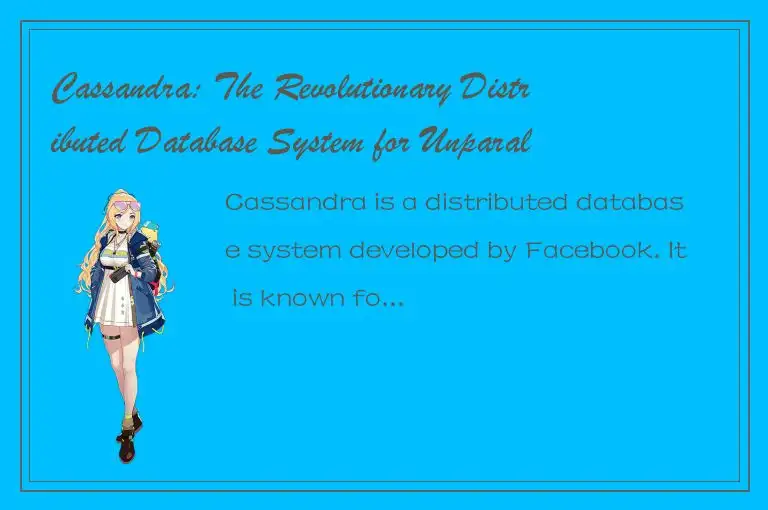Cassandra is a distributed database system developed by Facebook. It is known for its scalability, fault-tolerance, and high-performance. Cassandra is designed to handle large amounts of data across many commodity servers, making it an ideal choice for businesses that require high availability and reliable performance.

Cassandra is based on the principles of the NoSQL movement, which means that it doesn't use the traditional SQL language for data manipulation. Instead, Cassandra uses its own query language called CQL (Cassandra Query Language). CQL is very similar to SQL but is optimized for handling data on distributed systems.
One of the key features of Cassandra is its ability to scale horizontally. This means that it can handle an increasing amount of data by adding more nodes to the cluster. Cassandra's architecture is designed to be extremely flexible, allowing nodes to be added or removed from the cluster without any downtime.
Cassandra also provides automatic replication of data across multiple nodes, ensuring that data is fault-tolerant and highly available. If one node fails, Cassandra will automatically fail over to another node, ensuring that there is minimal disruption to the system. This makes Cassandra an ideal choice for mission-critical applications that require high availability.
Cassandra's performance is also unparalleled. Because it is designed to handle large amounts of data, it is optimized for reads and writes at scale. Cassandra uses an eventual consistency model, which means that data may not be immediately available on all nodes in the cluster. However, the data will eventually be consistent across all nodes. This allows Cassandra to handle massive amounts of writes without sacrificing read performance.
Another key feature of Cassandra is its ability to handle time-series data. Time-series data is data that is collected over time, such as stock prices, sensor data, or log data. Cassandra provides a number of features that make it easy to manage and query time-series data, making it an ideal choice for applications that need to analyze large amounts of data over time.
In addition to its scalability, fault-tolerance, and performance, Cassandra is also very easy to install and manage. It has a simple configuration file that can be easily modified to suit the needs of the application. Cassandra also provides a range of tools for monitoring the cluster's health and performance, making it easy to identify and resolve any issues that arise.
In conclusion, Cassandra is a revolutionary distributed database system that provides unparalleled scalability, fault-tolerance, and performance. Its ability to handle large amounts of data on commodity hardware makes it an ideal choice for businesses that require high availability and reliable performance. With its flexible architecture and easy-to-use tools, Cassandra is an excellent choice for mission-critical applications that require the best in distributed database technology.




 QQ客服专员
QQ客服专员 电话客服专员
电话客服专员